What if you could know the topics, keywords, and ideas that will go viral before they do? What would that knowledge do for your business or campaign?
Well, I can predict you’ll get more love from your audience, beat your competition more easily and, of course, make more money. Knowing the topics that will gain your user’s attention is like knowing the future.
For marketers and SEOs, knowing the future means discovering keywords and trends that will rank on page one of Google before they do.
Entrepreneurs can discover product ideas that their buyers will love.
Investors can find winning investment opportunities and reduce their risk exposure.
Writers can find topics with valid demand to write about.
And more.
Discovering trends and topics before they go viral is like discovering California and its gold before the gold rush. What if you could find the gold in your niche before the rush?
If you ever wanted to find the gold before the rush, Josh Howarth’s Exploding Topics has made that dream a reality.

My Discussion with Josh Howarth
1. Hello, please introduce yourself

Hey I’m Josh, co-founder of Exploding Topics and general tinkerer on the internet.
I spend my time trying to help people catch big trends to build businesses around or invest in. Alongside my fellow Exploding Topics co-founders Brian Dean and Kyle Byers.
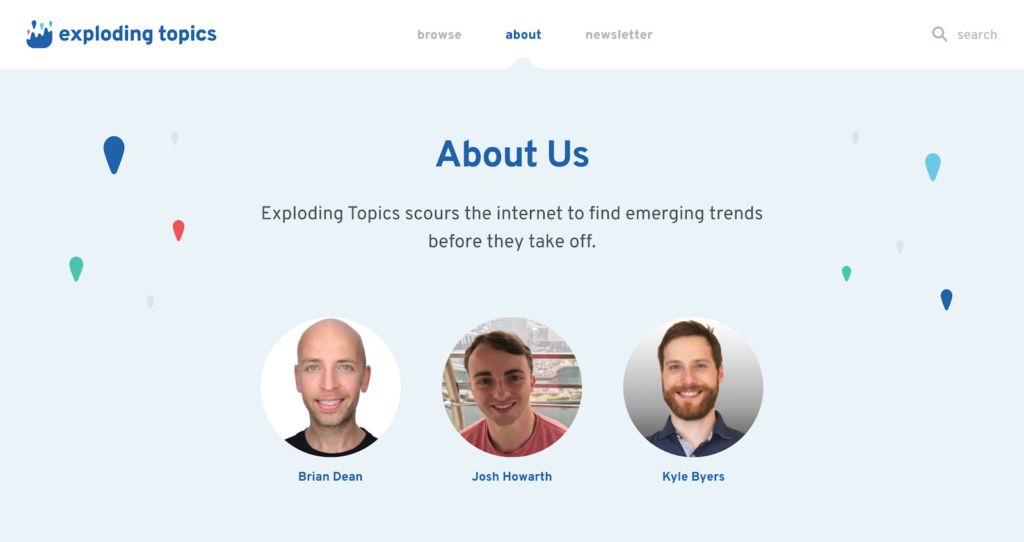
2. What does the name “Exploding Topics” stand for and how did you decide to use it?
I can’t take credit for the name – it was Brian’s idea! It refers to trends or topics that are taking off and gaining massive traction or attention. We decided on it since it’s easy to remember and simple to spell. Plus we were able to get the .com domain, which is always a big factor.
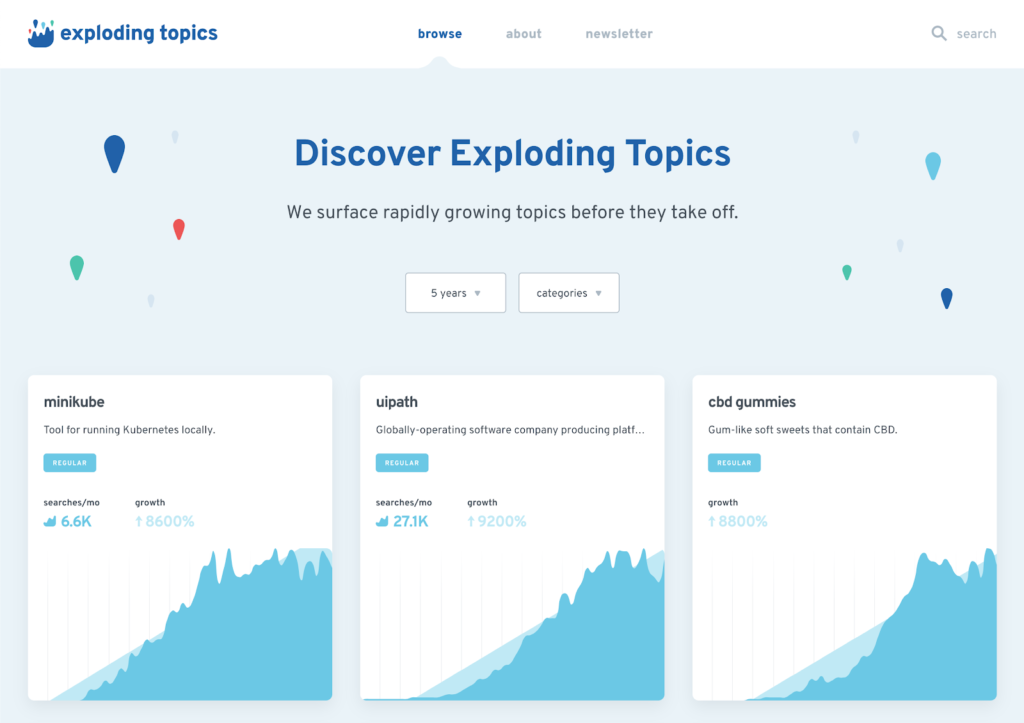
Also it’s SO MUCH better than our previous name “Trennd”. Try sharing “trennd.co” with friends and you’ll get back confused looks when you tell them it’s “trend” with two “n”s. Oh and “.co”, not “.com”.
3. What personal experiences or realization inspired Exploding Topics? Please give us a brief history of Exploding Topics
I’d struggled to get a previous SaaS project to take off. I took an exit intent popup plugin from zero to $600/month MRR over 6 months. But then I hit a wall. For every new customer that I painstakingly convinced to convert to paying, another one churned and MRR stayed flat. There were 5 other SaaS companies doing the same thing, and the marketing channels all seemed either saturated or ineffective.

In that same time period, I saw others grow to thousands of dollars of revenue with a hockey stick growth curve. I studied these other businesses, and started to realize that it’s 100X easier to build a successful online business by riding a big trend. Since the competition is still young or absent. SEO and paid competition is weak. And you can grow with the opportunity.

A great example of this is Transistor.fm, a SaaS company that provides podcast hosting. They saw the resurgence of podcasting, especially for businesses that seek lead generation and to build a brand, and they jumped on that trend early.
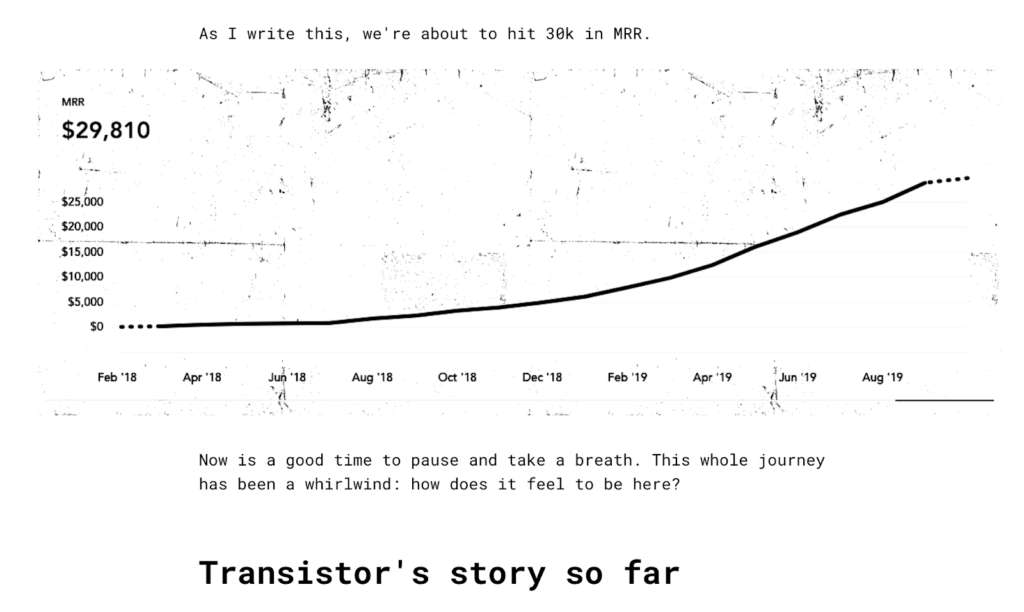
As a result, they’ve seen tremendous success very quickly. So I wanted to follow the same playbook.
4. What were the challenges you encountered building this product?
As a maker, the main challenge was to stop myself from retreating into my code cave for 6 months before showing anything to the world. And then emerging with something nobody wanted.
I had the added financial pressure of rent every month. With freelance work here and there I managed to stay afloat. But I really couldn’t afford to build another project that didn’t work out and couldn’t pay any bills.
So it was super important that I get the project out there as much as possible. To give it a chance to fail and then I could move on if it’s not validated. I forced myself to spend AT LEAST 50% of my time on promotion and marketing of the app.
5. Why did you make it a top priority to solve the trending topics problem?
I actually just wanted to find trending topics for myself to begin with. To find that wave that I could build my next SaaS product on. I built a personal tool that only worked in the computer terminal when you ran the code manually. And it worked really well.
So I thought, well if this is something I want so badly, maybe other people will find it valuable and this could be THE THING. It wouldn’t take long to wrap it up as a web app and throw it onto the web to see what people think. So that’s what I did.
6. You built a company that got acquired after six months. Any back story and how do you feel about it now – over six months after?
Overall, I think I was tremendously lucky with how things worked out. A lot of work went into it too, don’t get me wrong. But I wasn’t actively looking to sell the project. Brian reached out to me out of the blue and expressed he wanted to buy the project. The timing was perfect. I’d spent 6 months growing the project. And it had massive traction, people loved it and it was clear I was onto something. The project was growing mainly by word of mouth. But I still hadn’t monetized it. I was wracking my brain every day on that.
So when Brian emailed, it was a mega opportunity. He could help me figure that out. And he had A LOT of experience and a massive audience from Backlinko, his SEO blog.
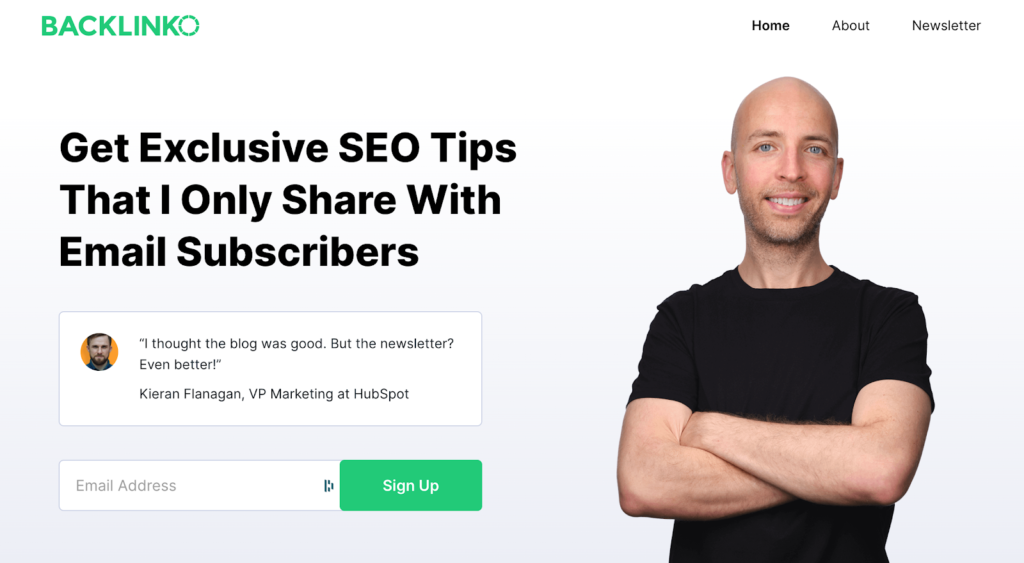
With his help, I knew for a fact we could take this thing to the next level. So we agreed on a sale/partnership, where I would stay on as a co-founder with a stake in the business. It was a huge win-win for both of us.
And I still feel 100% the same way. As a direct result of Brian’s involvement, we’ve redesigned the app so it’s much more streamlined to use and way more beautiful generally. The number and quality of the trends we find has skyrocketed. And the mailing list for our weekly newsletter where we provide our best exploding topics, with insight + analysis, has grown from 2.5K to 55K subscribers.
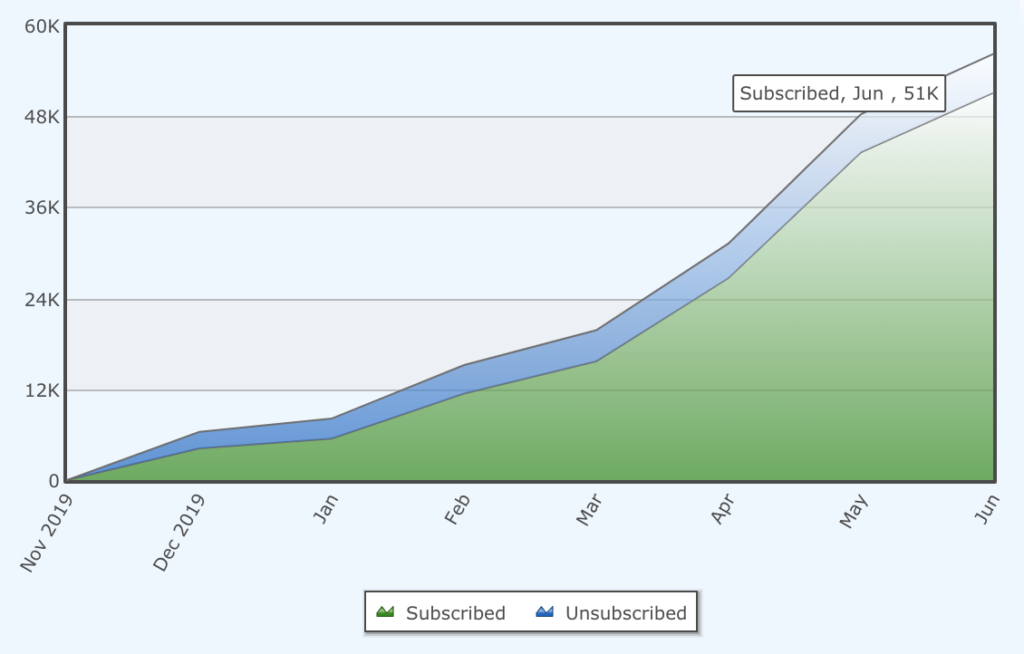
7. In the early days of trennd.co, you had a lot of traction but failed to monetize. You had only been operating for six months before you sold to Brian Dean of Backlinko. How did you agree at a valuation? What metrics did you use to come to an exact value or amount?
This was a tough one. We were both stumped about this. After all, the project was making zero money. If you do a multiple of that, it’s still ZERO! In the end, our approach was to take how much I would have earned as a developer in the same time. And then multiply it by X, to compensate for the traction, success and potential the project had already had. I’d also get a revenue stake in the business and continue to work on the project paid for at least 6 months.
8. Your product was a wild success in a very short time, how did you lay the groundwork that made that possible? If you leveraged communities, what communities did you leverage and how did you get into those communities? What else did you do?
I basically went to where I hang out all the time. This product was for me to begin with after all. So I thought people like me, entrepreneurs, developers and techie folk should hopefully like it. This means places like Reddit (like the r/entrepreneur subreddit), Hacker News and Product Hunt.

I’d lurked on these forums for a LONG time. So I’d gained a general sense of the posting etiquette in each place. For example, if you just promote your own wares on Reddit then you get eaten alive. But if you lead with valuable information in text format (so they don’t have to click a link and leave Reddit), then this generally buys some goodwill to share your thing and get feedback.
Hacker News is a huge aggregator of tech news and the traffic you can get from it is insane. But there’s also a lot of noise. Usually you don’t make it to the front page, but when you do then tens of thousands of people will flood your website. Our database actually went down when we hit #1 on Hacker News as I was just on the free plan and 600 people tried to go on the site all at once. I upgraded the DB tier though and quickly got back online! It helped that the Hacker News audience is pretty forgiving towards new, unpolished projects and give a lot of valuable feedback in the comments section.
Aside from this, most of the growth was organic in the beginning. Word of mouth spread on Twitter is big for us. People like Rand Fishkin and Pieter Levels somehow came across the app and have tweeted about it. We’ve recently started to double down on Twitter as we’re finding this is where a lot of people hunting for the next big thing tend to hang out.
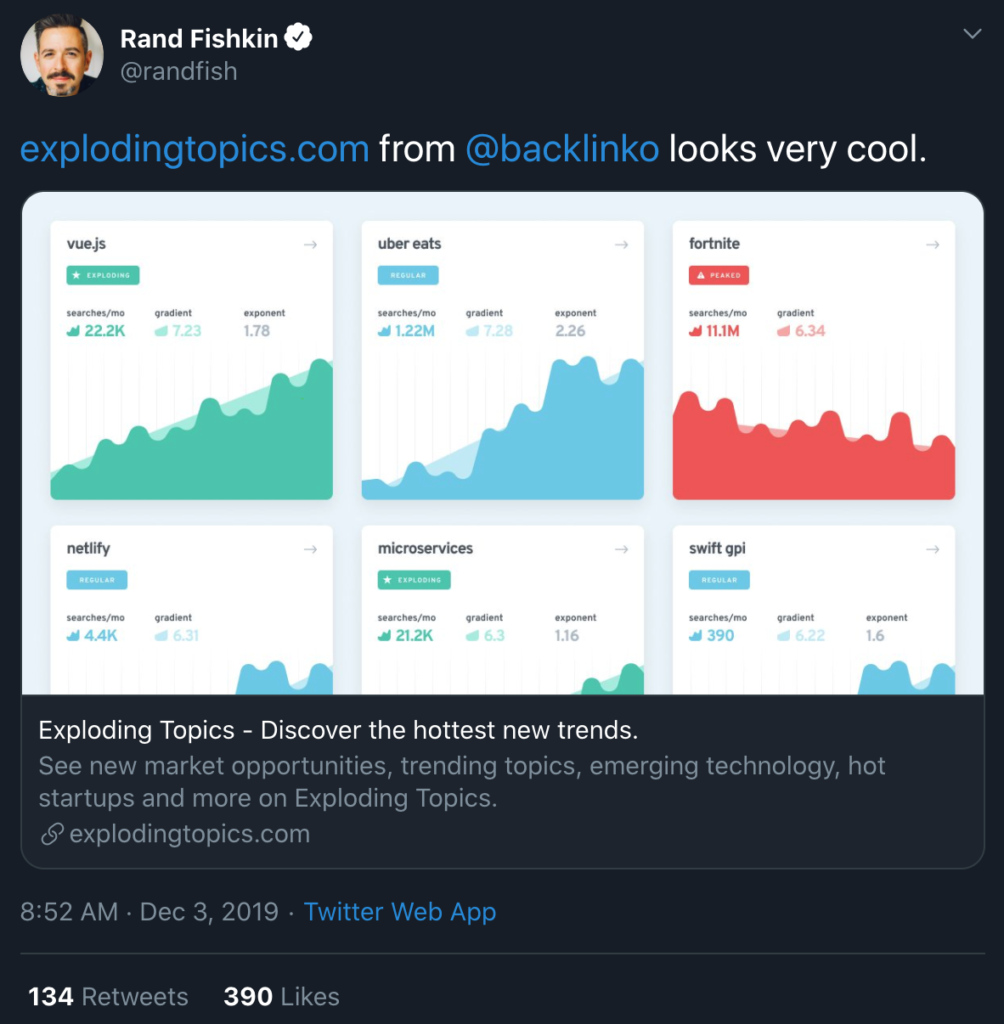
9. You built trennd.co alone, but partnered with Brian Dean after the sales of trennd.co and transitioned to Exploding Topics. On a personal level, what has changed as you moved from being a lone-creator to working with a partner?
I think I’m generally a lot less stressed and more sane. When you’re working alone on something new, where the best direction is unknown, you’re not monetized, you’re just throwing things at the wall to see what sticks… well this is a lot to think about just inside your own head. I actually had to write a monthly update to keep track of high level progress and direction. Plus it helped to keep myself accountable.
But with Brian, and also Kyle now too, as partners it’s so much better. We can bounce ideas around and 3 heads are far better than one. Add to this that both Brian and Kyle are super sharp guys with a lot more experience doing this kind of thing than myself. So we can pretty much always come to a consensus that makes sense and is the best direction for Exploding Topics.
10. On the business level, besides the name change from trennd.co to Exploding Topics after the acquisition. What else really changed for your business?
Our direction and focus has improved a lot. Previously I was trying to do too many features but all of them were far from perfect. Now we’ve really honed in on the core value proposition of finding juicier trends faster, and more of them. And then providing valuable insight and analysis around our hottest trends in our newsletter. So that people can actually take action on these trends.
Another big thing is that we’re no longer hamstrung by my previously limited finances. After acquisition we can pay for IT infrastructure, professional design work and other services or outside help we need.
11. What makes Exploding Topics stand out from Google Trends and its other competitors?

Google Trends is great if you know what you’re looking for. Say for example, you want to see if “podcasts” are trending in search – then you just plug that in.
But we’re about discovery. After all, you don’t know what you don’t know.
For example, you wouldn’t know to search for “Hard kombucha” because you’ve never heard it before. But if you’re subscribed to Exploding Topics, we’ll surface a lot of trending topics like “Hard Kombucha”, tell you what it is, why it’s taking off and how you can take advantage of it.
And if you’re looking for exploding topics in a particular niche, you can use our web app which showcases thousands of trending topics by niche and timeframe, along with live charts and related topics.
12. What has been the most explosive topic or trend on Exploding Topics? And why?
There’s so many that have that hockey stick, exponential style growth. So it’s hard to say which is THE most explosive topic. But some of the most explosive trends right now are a result of Coronavirus and the effect of that on consumer behaviours. We actually made a report on Post COVID-19 Trends you can check out.
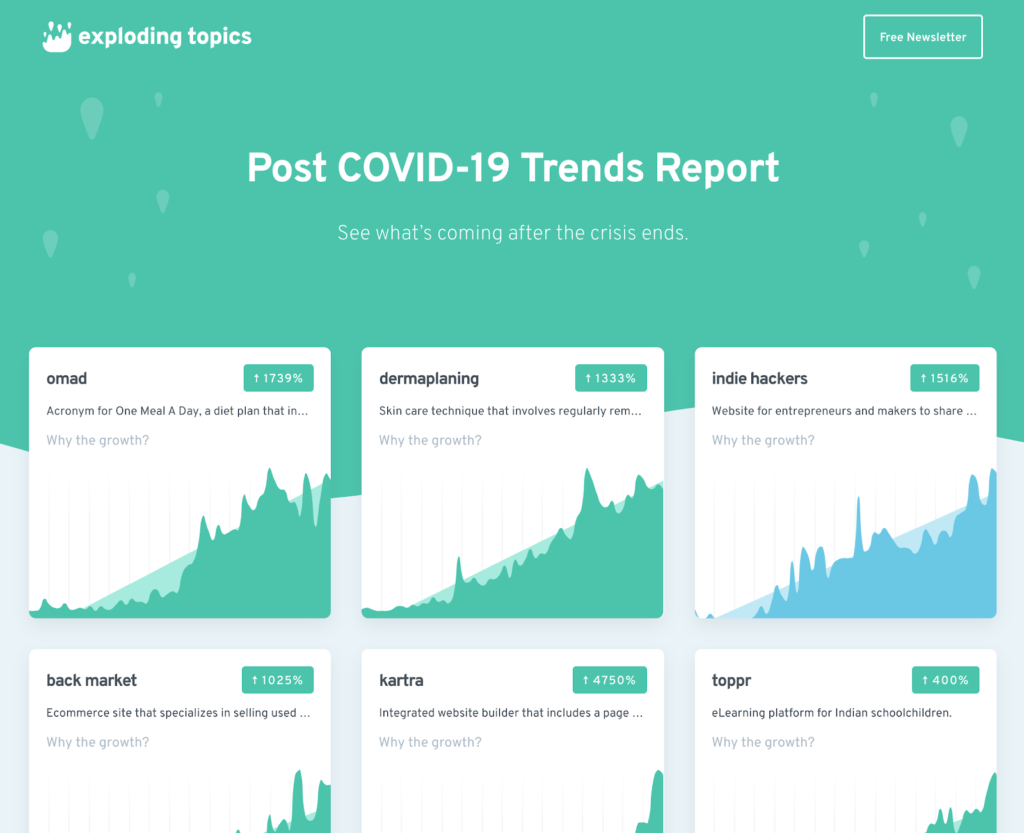
Some of the most interesting examples from that are “air purifying plants” as people are understandably more concerned about their air quality now. Also, “Indie Hackers” which is a community for people building online businesses. With everyone on lockdown, thousands of people have started the side hustle they always wanted to start but never had time to do. So communities like this are growing quickly.
13. Why do topics or trends explode?
It’s just the nature of things. A topic goes from something nobody has ever heard of, to being known by a small group of early adopters. If it’s a really good thing, captures some untapped latent demand in the market, or strikes a chord with the current zeitgeist, then the topic builds momentum through word of mouth and takes off.
The more linear, non-explosive trends are often actually companies. As they engineer their growth: they try different channels until they find a fit, and then double down on it.
14. For our audience who are content creators and are just hearing about your product. How best can they use the three classes of topics (Regular, Exploding, and Peaked)?
Regular and exploding topics are all taking off right now. A lot of them are quite new, so the keyword competition around them is usually relatively weak. Which gives you the chance to pounce on them and create content about them before it becomes saturated. And since their search volumes are going up, this strategy will likely pay dividends in the future, when these topics are even bigger.
The peaked topics are probably less useful, but we keep them around since they can still be interesting.
15. You wrote in your post on Marker that exploding topics will be focusing on topics for professional blogs. Will this include trends for corporate brands or only blogs with a face, like Backlinko.com and Neilpatel.com?
We’ve pivoted a bit since then towards a focus on our weekly newsletter, Exploding Topics Tuesday. We received a huge number of requests to create a newsletter after our Product Hunt launch. And that launch brought in over 3,000 new email subscribers.
Even though our subscribe form was on a page only available via a link buried in the website footer.
We’ve obviously changed that now, but it was a clear signal we should focus on creating a killer newsletter. And that the potential audience was much larger than just professional bloggers. A lot of entrepreneurs and investors subscribe, as well as executives and marketers from big companies like Apple and Slack.
So we now run Exploding Topics Tuesday, “Your Window Into The Future, Delivered Every Tuesday”, in which we provide 5 new trending topics and analysis each week. And the feedback we’re getting on this is extremely positive.
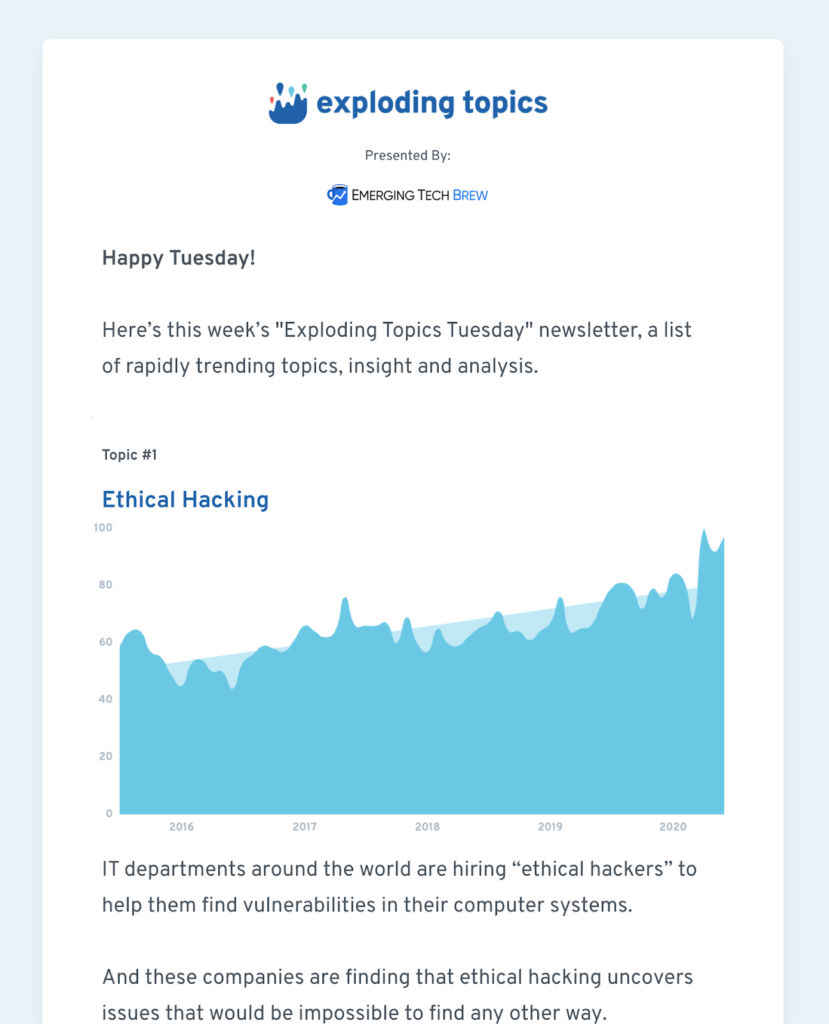
16. Are your topics suitable for every geographical region? Can a professional blogger in Senegal find the topics useful?
The trending topics are based on global data. So they are valuable to people in every geography. An extremely interesting phenomenon I’ve spotted is that trends that start in one location spread to other geographies. Which makes sense.
For example, a lot of hot trends right now actually started in Korea. Especially topics around beauty, fashion or food. Exploding Topics like sheet masks and Mukbang are prime cases of this.
17. What improvement are you making to Exploding Topics at the moment?
We’ve recently added descriptions to each topic to actually explain what it is. For a long time we just had a link to search the topic on Google! Often it was hard to even guess what a topic was when you were on its page.
We’ve also added related topics to each topic page, so that you can keep digging further into that particular niche. Plus we souped up the search functionality and the UX generally too.
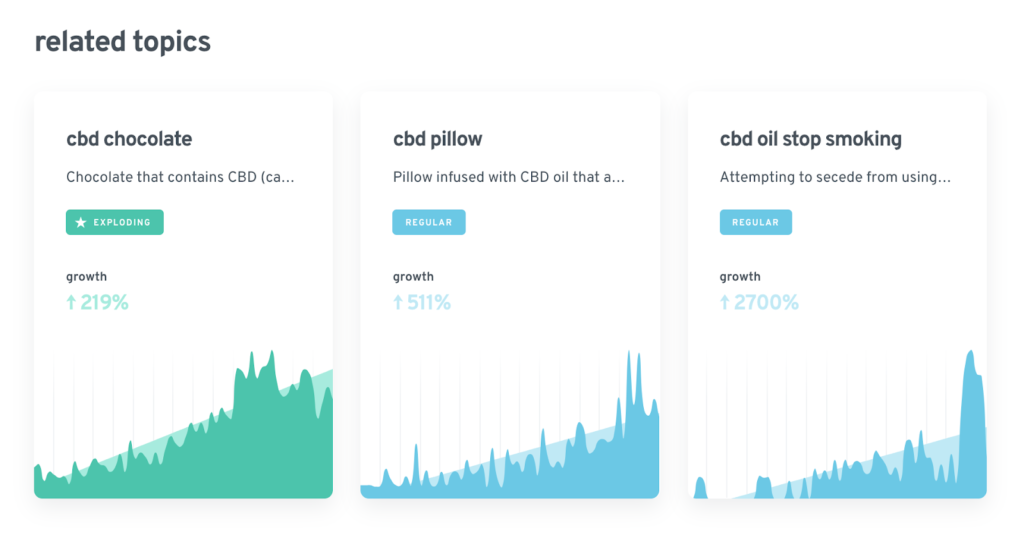
Overall we’ve worked hard to increase our trending topic detection throughput. This way we can get a larger number of awesome new trends to subscribers and visitors each week. Now we’re working on featuring a more varied collection of topics on the homepage which will change more often.
18. What’s the big picture – where do you see Exploding Topics in the next five to ten years?
I see Exploding Topics as THE source to surface new trends. Whether you’re on the hunt for new startup ideas, products to sell, content topics or just to stay up to date with how things are changing in the world and new stuff.
I think we’ve already started to establish a reputation as being the place for this. But we still have a long way to go to increase our presence more fully on the web.
19. You started Exploding Topics after a failed venture – what’s your favorite mistake? The mistake you’ve gotten the most “ROI” from so far.
It’s tough to pinpoint one specific mistake, but I think all of the mistakes on my previous SaaS project revolved around one fatal premise. That is, it doesn’t matter how hard you’re working on something, if it’s the wrong thing.
This applies at every level. Small specific tasks, marketing channels or even the whole project. Regardless of hours spent, you’re just spinning your wheels if it’s not definitively moving you closer to your target.
But sometimes I’d spend too much time trying something that wasn’t working, just because doing something felt therapeutic or was an excuse to avoid the real problem. I try to avoid that trap now!

20. What’s the best thing anybody ever said about your Exploding Topics?
We’ve had some amazing tweets, but I think the best one was:
“ExplodingTopics.com I like the way these guys think. They don’t try to do too much. They ‘get it’.”
21. We all know that every product receives negative comments. What’s the worst you have received?
The product and newsletter themselves have fared surprisingly well. But in my write-up of the acquisition story on Marker I made the mistake of saying “we literally shook hands over Skype.” Since we both pretended to shake hands for a verbal agreement.

And then someone on Hacker News commented: “I’d love to know how he literally shook hands over Skype video.”
I face-palmed pretty hard after reading this. Haha!
22. What’s one fascinating thing about Exploding Topics that you have never talked about before now?
Exploding Topics has actually become an exploding topic on Exploding Topics: https://explodingtopics.com/topic/exploding-topics.
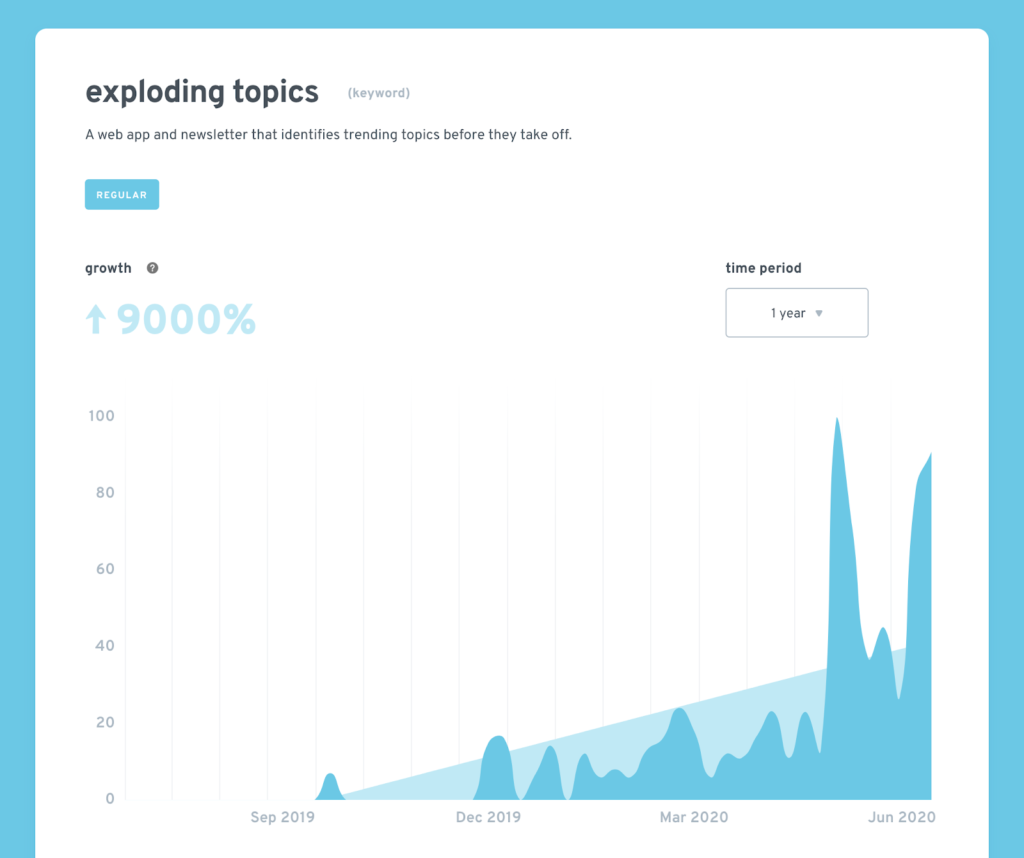
Meta right?! I haven’t mentioned that to anyone before, but I think this is quite funny how it all worked out.
Wrap Up
Regardless of your business, professional and career interests, Josh Howarth’s story and his company’s have a ton of value to share. Josh’s success highlights the power and importance of being in the right communities. And entrepreneurs, marketers, and investors can easily use the insights from Exploding Topics to guide their decisions.
